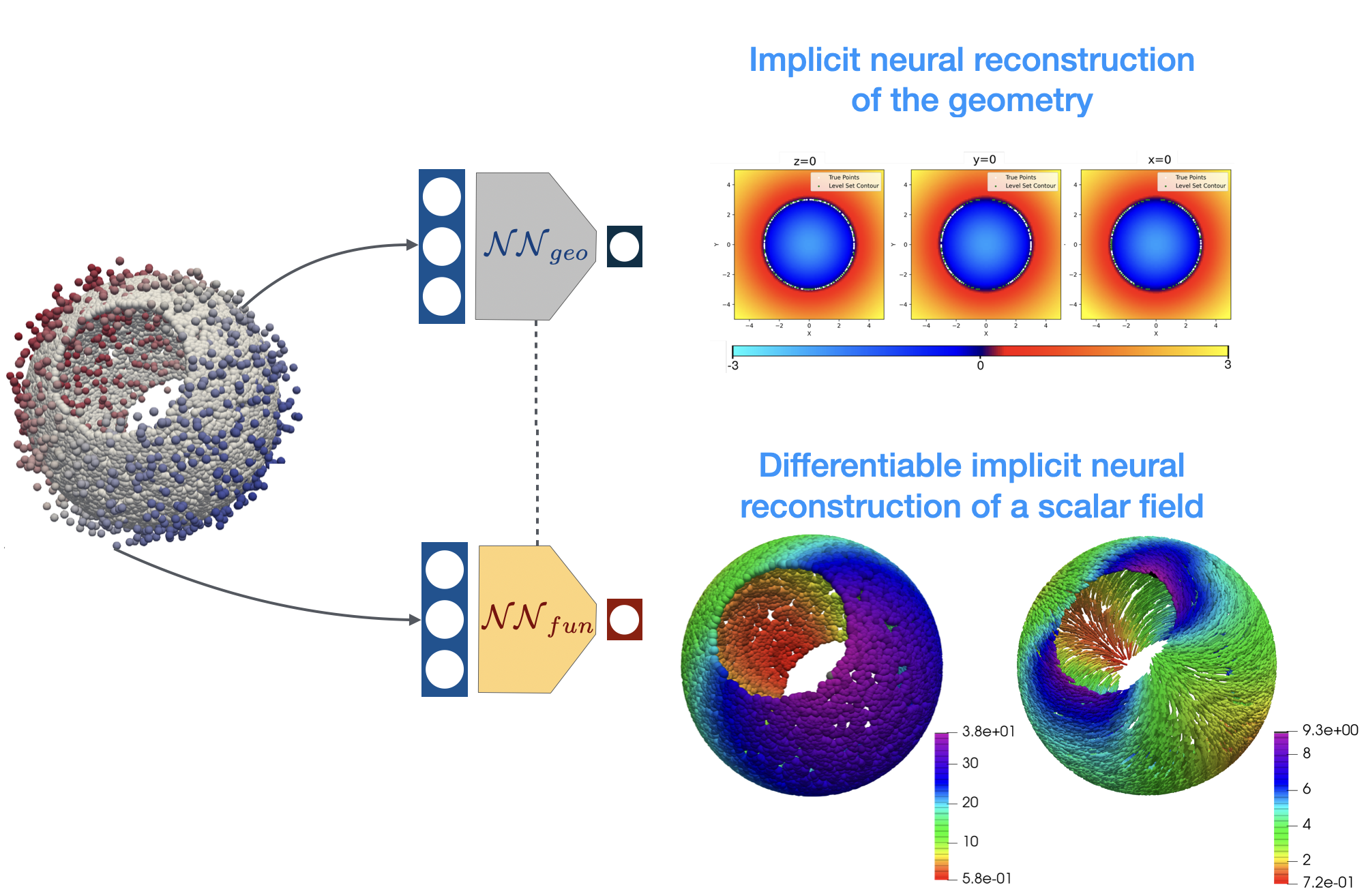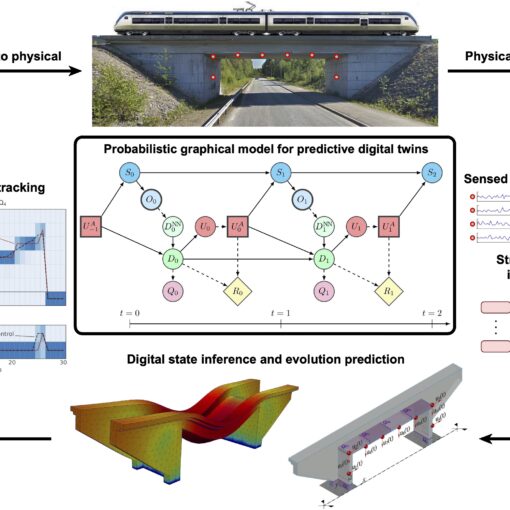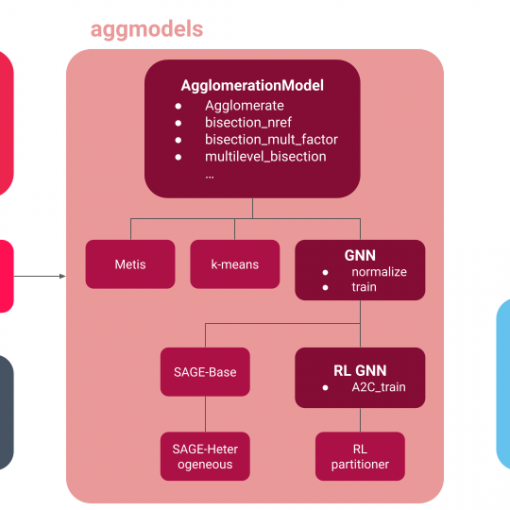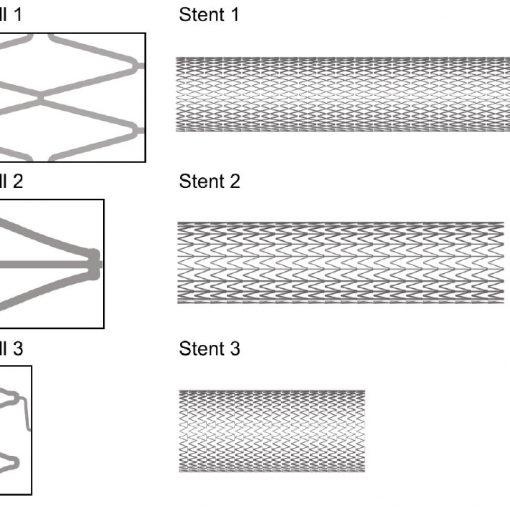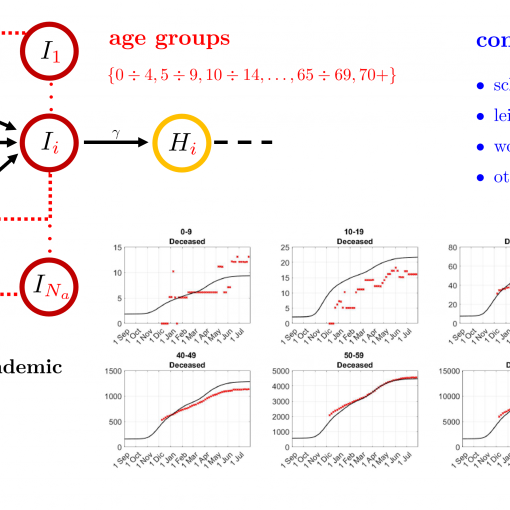A new MOX Report entitled “Implicit neural field reconstruction on complex shapes from scattered and noisy data” by Carrara, D.; Regazzoni, F.; Pagani, S. has appeared in the MOX Report Collection. Check it out here: https://www.mate.polimi.it/biblioteca/add/qmox/40-2024.pdf Abstract: Reconstructing distributed physical quantities from scattered sensor data is a challenging task due to geometric and measurement uncertainties. We propose a novel machine learning based framework that allows to implicitly represent geometries solely from noisy surface points, by training a neural network model in a semi-supervised manner. We investigate different combinations of regularizing terms for the loss function, including a differential one based on the Eikonal equation, thus ensuring that the level set function approximates a signed distance function without the need for preprocessing data. This makes the method suitable for realistic, noise-corrupted, and sparse data. Furthermore, our approach leverages neural networks to predict distributed quantities defined on surfaces, while ensuring geometrical compatibility with the underlying implicit geometry representation. Our approach allows for accurate reconstruction of derived quantities s! uch as su rface gradients by relying on automatic differentiation tools. Comprehensive tests on synthetic data validate the method’s efficacy, which demonstrate its potential for significant applications in healthcare.
You may also like
A new MOX Report entitled “A digital twin framework for civil engineering structures” by Torzoni, M.; Tezzele, M.; Mariani, S.; Manzoni, A.; […]
A new MOX Report entitled “MAGNET: an open-source library for mesh agglomeration by Graph Neural Networks” by Antonietti, P. F.; Caldana, M.; […]
A new MOX Report entitled “Easy-to-use formulations based on the homogenization theory for vascular stent design and mechanical characterization” by Carbonaro, D.; […]
A new MOX Report entitled “SEIHRDV: a multi-age multi-group epidemiological model and its validation on the COVID-19 epidemics in Italy” by Dede’, […]

